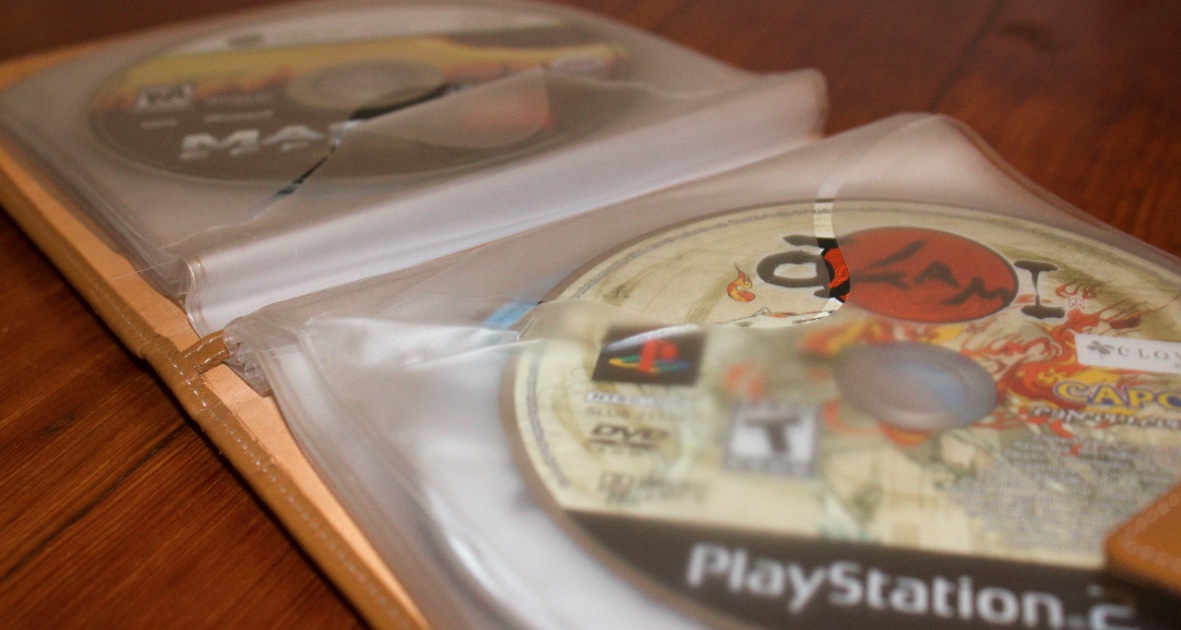This post has not been edited by the GamesBeat staff. Opinions by GamesBeat community writers do not necessarily reflect those of the staff.

Am I sick of these games? Yes. But will I always be?
With the fall gaming season truly upon us, I find myself thinking once again about the great used game debate. With so many decent games coming out at once, where am I supposed to get the funds to experience them all? Though a profitable life of crime is sometimes tempting, it doesn't take long for me to remember that there are no video games in prison. Likewise, I'd be unable to play any games at all if I sold my organs to street vendors in Chinatown. I can't find a downside to selling my soul to The Beast, but the dude never returns my calls.
I guess the only option, then, is to once again pour my game collection onto a mental sieve and hope that those with the least perceived value fall through to the cold, dirty sandbox of the used games market. In truth, though, I haven't sold a game in years. I learned early on in life that a game half remembered from my hazy past can often be more enjoyable on a lazy afternoon than any new blockbuster.
Super Mario RPG, the Donkey Kong Country trilogy and, for some reason, Pac-Man 2: The New Adventures – to my Canadian Grandma. She kept it in her basement (3,000 miles away) for me and the other grandkids to play when we visited, and I know for certain she enjoyed more than one game of Super Mario Kart herself.
When the Xbox came out some five years later, I did nearly the same thing with my N64, this time selling the likes of Ocarina of Time, Gauntlet Legends and Jet Force Gemini straight to Gamestop without a second thought. How could the blocky plains of Hyrule or the laughable cyber-clichés of Perfect Dark hold my interest with the sprawling locales of Halo just a loading screen away?
It wasn't long after that, though, when I started longing to once again delve into the graphically limited but still alluring games of my early childhood. They somehow retained an undeniable level of charm. The concept of nostalgia is foreign to a pre-teen brain, but at 13, I was ripe to feel its gentle claws in my back, tugging and tugging until I finally begged Grandma to sell my Super Nintendo back to me (with inflation, of course).
Her answer? A resounding "no." My younger cousins were having too much fun with it (over half a decade later, the second youngest plays Monster Hunter every day and wants to be a game designer – did I do that?). I had no choice but to buy a used system from Gamestop, completing the price-gouging circle the retailer lives and breathes by yet today.
What did I learn? To never sell my games again. Examining the debris from underneath that mental sieve, I find that not a single game I own has made it through. It's just not worth it. In five, ten, twenty years, will I remember my college days fondly as I while away an hour or two playing Far Cry 2 or Super Paper Mario? I can't say for sure, but I know I wouldn't relish the trip to Gamestop if I had to purchase the titles again.
![]() Even their Black Friday sales suck.
Even their Black Friday sales suck.
Yes, I keep my games, but not because of underhanded schemes like EA's Project Ten Dollar or trickles of DLC that I just can't bear to miss out on. Why do game publishers think their commodity is different from every single other product in the world? Do they think I owe Warner Bros. 30% when I sell my VHS of Harry Potter and the Sorcerer's Stone for a buck at a garage sale? Should I send my plumber another check every time I take a shit? Fie!
Once I buy a game, I'm free to do as I like with it. That's the law, it's a fact, and if game companies are losing money because of it, they should explore alternate business models. Releasing content in episodes is one solution. If the first episode doesn't sell, they won't have to waste the money on the rest of them. Digital releases are better for the environment, more convenient for consumers, and can't be returned, anyway. They could also work on reducing the ridiculously overblown budgets granted to triple-A games – It doesn't take $50 million to make a great game.
I keep my games because of hope for the future and respect for the past. Maybe one day, my kids (OK, I don't actually want kids, but if I did..) can peruse my ever growing collection and experience a little slice of nostalgia for themselves – when they're old enough, that is.
